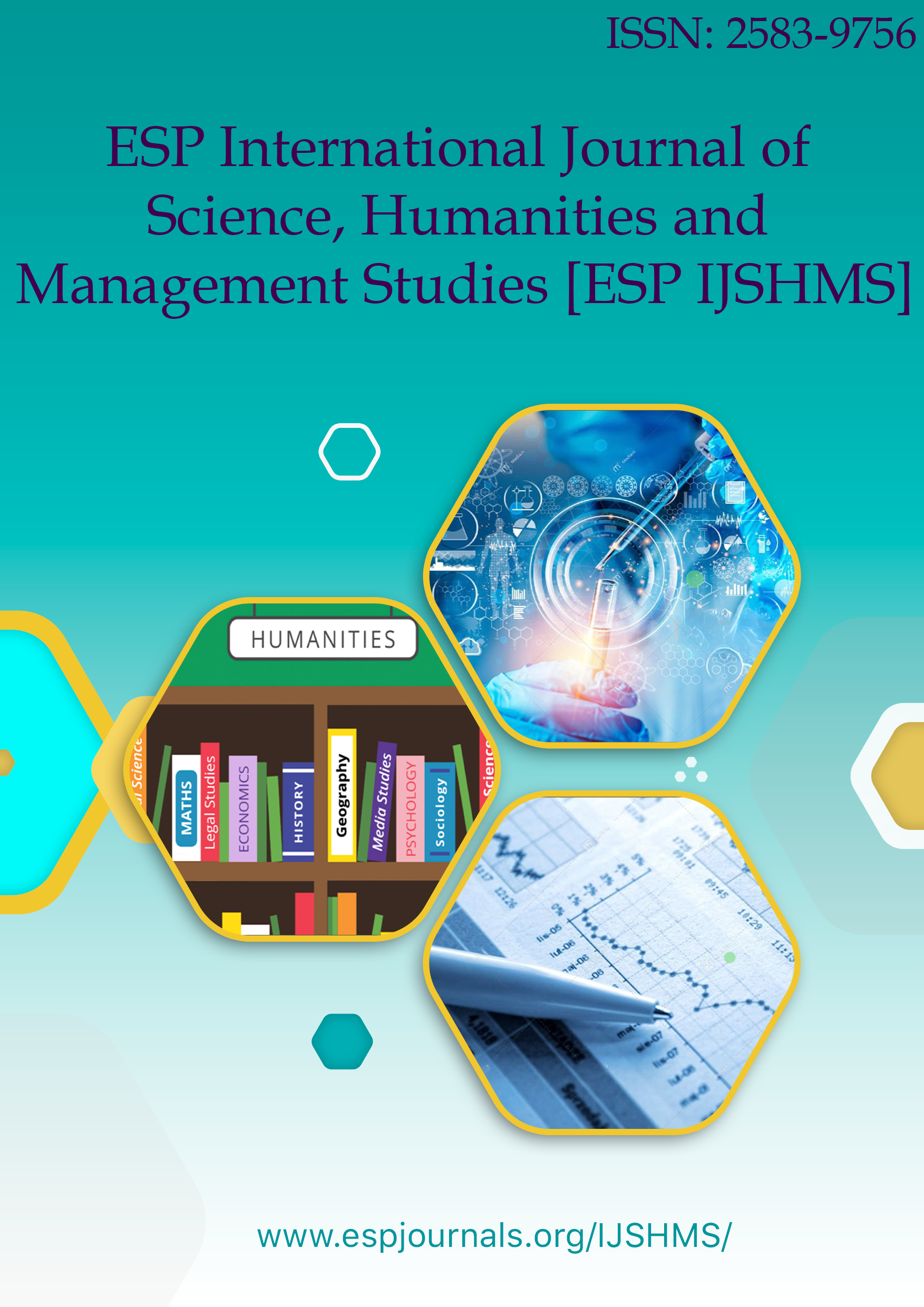ESP International Journal of Science, Humanities & Management Studies(ESP-IJSHMS)
Citation :
Hauwa Musa Bello, BAKARE Kehinde Najimu, OGUNDARE Yemi Daniel, 2025. "Party Supremacy and Its Influence on Presidential Elections in Nigeria and Ghana: A Comparative Analysis" ESP International Journal of Science, Humanities & Management Studies(ESP-IJSHMS) Volume 3, Issue 3: 1-10.
Abstract :
The paper aims at conducting comparative political research on the role played by party supremacy in Nigeria and Ghana to determine the direction of presidential elections in West Africa two of the most advanced democracies. Based on the concepts of the institutional theory and elite theory, the paper questions the influence of internal parties, domination of elites inside the party and party unity to the occurrence of candidate, citizen participation, and affiliate governance of the democratic accountability. Although these two nations lack a strict resemblance as they apply presidential systems of governance in a multi-party system, there are contrasting effects in the practice of partisan power. Party supremacy is commonly associated in Nigeria with elite domination, poor party internal democracy, and patron client relationship which result in reduced voter choice and reduced electoral competition. Competitive primaries, voter-powered intra-party democracy, and increased electoral legitimacy, however, have through the relatively institutionalized party politics in Ghana and more specifically the New Patriotic Party (NPP), and the National Democratic Congress (NDC) in particular allowed a rapid expansion of democracy in Ghana. To examine these dynamics, the paper uses qualitative data based on electoral reports, the constitutions of the parties, key informant interviews and secondary literature. The results indicate that with no checks by democratic standards, party control results in a lack of integrity in the elections and curtailment of political innovations. In conclusion, the study recommends that strengthening of the internal democracy, the transparency in the selection of the candidates and the elimination of the elite control would help the countries to improve the quality of their presidential elections and the democratic form of government. The paper is a contribution to the existing literature written on African democratic development by providing a new comparative understanding of how parity supremacy mediates the democratic outcome in the hybrid regimes.
References :
[1] Adeoye, A. O. (2023). Candidate selection and the erosion of internal democracy in Nigeria’s 2023 general elections. African Journal of Political Science, 17(1), 88–102. https://doi.org/10.4314/ajps.v17i1.5
[2] Basedau, M., & Stroh, A. (2008). Measuring party institutionalization in developing countries: A new research instrument applied to 28 African political parties. GIGA Working Paper, No. 69. https://www.giga-hamburg.de/en/publications/11529361-measuring-party-institutionalization-developing-countries-new-research-instrument-applied-28-african-political-parties/
[3] Braun, V., & Clarke, V. (2021). Thematic analysis: A practical guide. Sage Publications.
[4] Creswell, J. W., & Poth, C. N. (2018). Qualitative inquiry and research design: Choosing among five approaches (4th ed.). Sage.
[5] Drah, B. B., & Osei, A. (2021). Political party financing and internal democracy in Ghana: Challenges and reforms. Electoral Studies, 74, 102410. https://doi.org/10.1016/j.electstud.2021.102410
[6] Dzisah, W. S. (2021). Democratic resilience in Ghana: Evaluating the electoral commission’s performance. Journal of African Elections, 20(1), 1–19. https://doi.org/10.20940/JAE/2021/v20i1a1
[7] ECG. (2021). Report on Ghana’s 2020 general elections. Electoral Commission of Ghana. https://ec.gov.gh/elections2020/
[8] Ezeibe, C. C., Ogbodo, J. N., & Chukwuemeka, E. (2021). Political parties and elite dominance in Nigeria’s Fourth Republic: Implications for democratic consolidation. Journal of Asian and African Studies, 56(7), 1607–1622. https://doi.org/10.1177/00219096211001258
[9] Gyampo, R. E. V. (2022). Party primaries, monetization, and the democratic deficit in Ghana. African Review of Economics and Finance, 14(2), 231–250. https://journals.ufs.ac.za/index.php/aref/article/view/5926
[10] Independent National Electoral Commission [INEC]. (2023). 2023 general elections: Post-election review report. https://inecnigeria.org/wp-content/uploads/2023/Report-on-Post-Election-Review.pdf
[11] Mosca, G. (1939). The ruling class (H. D. Kahn, Trans.). McGraw-Hill. (Original work published 1896)
[12] Mills, C. W. (1956). The power elite. Oxford University Press.
[13] North, D. C. (1990). Institutions, institutional change and economic performance. Cambridge University Press.
[14] Okonkwo, R. O., & Agbakwuru, C. (2023). Party supremacy, godfatherism and electoral crisis in Nigeria’s 2023 general elections. Review of African Politics and Development, 9(1), 53–67.
[15] Okoye, J. E. (2023). The crisis of internal democracy in Nigerian political parties. Democracy and Society, 21(3), 37–45.
[16] Onapajo, H., & Babalola, D. (2022). Political parties and the problem of elite domination in Africa’s presidential democracies: A comparative view. Comparative Politics in Africa, 5(1), 22–40.
[17] Pareto, V. (1935). The mind and society: A treatise on general sociology. Harcourt, Brace.
[18] Yagboyaju, D. A., & Akinola, A. O. (2020). Nigerian political parties and democratic consolidation since 1999: A historical and institutional appraisal. Journal of African Elections, 19(2), 72–95. https://doi.org/10.20940/JAE/2020/v19i2a4
Keywords :
Party Supremacy, Presidentail Elections, All Progressive Congress (APC), Peoples Democratic Party (PDP), National Democratic Congress (NDC), Ghana, Nigeria.


 : 10.56472/25849756/IJSHMS-V3I3P101
: 10.56472/25849756/IJSHMS-V3I3P101